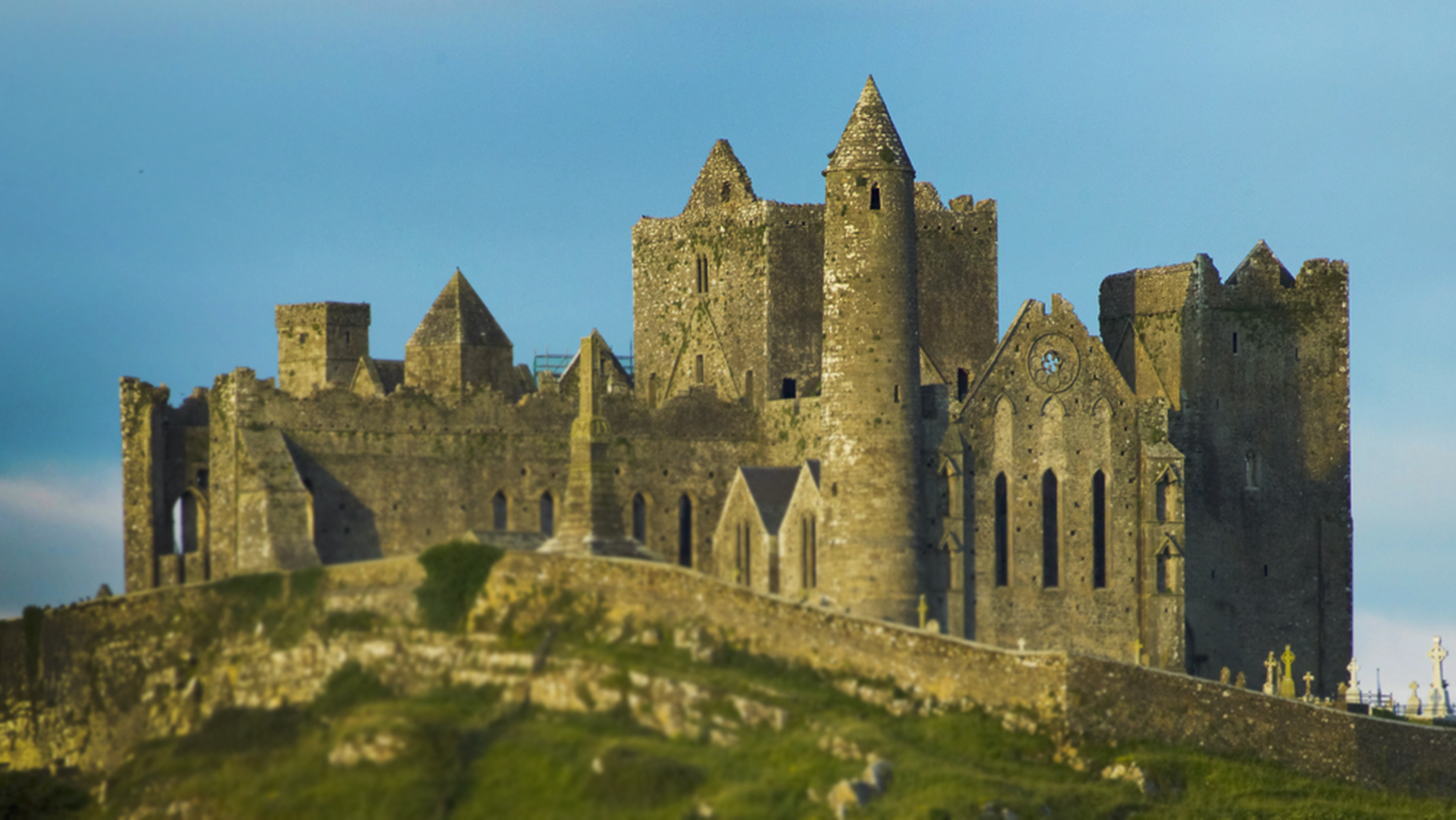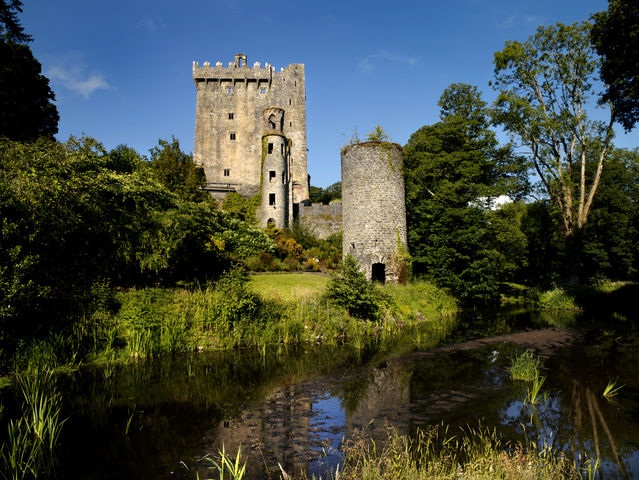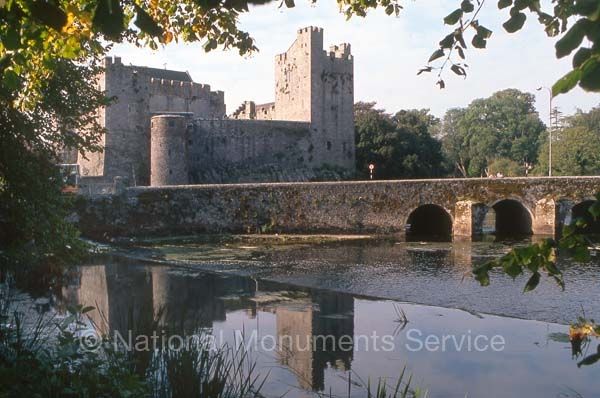
The Ruins and Castles of Ireland
The Castles of Ireland whether in ruin or in full structure have a huge story to tell. Ghosts, grand dynasties and gifts of the gab… when it comes to Irish castles, you never quite know what stories lie around the next turret! There are mysteries around every turn when you are exploring the castles and ruins of Ireland. Learn about the history, horrors and homes that the castles were centuries ago on our Blarney castle and cork day tour! After the Norman fortresses came defensive tower houses, Elizabethan manors, Victorian, Baronial and other flights of fancy in both new buildings and adaptations of original structures. What followed was a motley collection of crumbling ruins, medieval mash-ups and pristine stately piles that seem purpose-built to surprise you at the most unexpected times. This tour will give you an insight into the Blarney castle and Cork tour along with some Info about the castles and history of Irelands lords and ladies that lived that use to live within these castles walls.
Join us for a journey down the south of the country for an exciting adventure! On this tour you will be experiencing Irish history. We will be visiting three spectacular sites as we head towards cork and the south of Ireland. We head off from Dublin city centre on our comfortable coaches for a fantastic day tour. Our experienced guides will inform you of the day that lies ahead, along with interesting Irish history and if you’re lucky, an Irish folk song for the road! We head towards the iconic Rock of Cashel which shows a rich history. Next we visit the picturesque Blarney Castle where you can climb the winding stairway to kiss the famous blarney stone and receive the: ‘Gift of the gab’. After a lunch break In Blarney Castle we head on towards the beautiful Cahir Castle for a guided tour of these ancient grounds. Unfortunately, all good things must come to an end and we will be heading back to Dublin for 6.00pm, with lastly memories of our beautiful country.
Our first stop on this exciting tour is the Rock of Cashel. This is not exactly a castle or a ruin of a medieval castle. This large and impressive ecclesiastical building has offered spectacular sites and incredible archaeological discoveries. The rock of Cashel is deeply enriched with Irish history and is one of the best kept ancient buildings in the area, being own by the OPW, well worth visiting any day! This collection of ancient ruins can date back to the 12th century and was once home to royals at first but then became home to many saints, monks and holy people. It was once embellished with wonderful things such as stained glass windows, important holy artefacts and fine furniture. But now it lays bear with no such things, but it still has the power to leave you in awe of this amazing piece of Irish history.

During its time as a royal site most likely, there would have been a stone fort on top of the hill as the name ‘cashel’ means stone fort. Most likely, the site had ritual and ceremonial significance. In early Christian times, Brian Boru was inaugurated as King of Munster at the Rock of Cashel in 978. In 1002 he was the first King of Munster to become High King of Ireland. Again, the inauguration took place at this site. Brian Boru died at the battle of Clontarf in 1014. No buildings are left from this period. Most likely, the era of the stone fort continued until this point. The 12th-century round tower is of the oldest surviving building on the Rock, also include a high cross, and the ruins Romanesque chapel – Cormac’s Chapel is one of the earliest, and finest churches built in the Romanesque style. The 13th-century Gothic cathedral is a large cruciform Gothic church without aisles built between 1230 and 1270. Also a 15th-century castle and the Hall of the Vicars is the entry point to the enclosure. The Hall houses and the museum is where the original Cross of St. Patrick can be found. This eerily beautiful site is shrouded in history and ancient stories. Take a walk around the castle walls, listen to the croaking black crows and look out upon all of Tipperary that falls before you, it surely is a magnificent view, maybe that’s part of the reason it was built there!
Next we visit one of the most well-known and majestic castles in Ireland, Blarney castle its self. The castle was built almost 600 years ago in the small village of Blarney in County Cork, and since then millions of people from all over the world have come to visit it. It is one of Ireland’s most loved and treasured landmarks. It is said that once you kiss the stone at the top of the tower you will never be lost for words again. The origin of Blarney Castle goes all the way back to the early 13th century. However, the castle as we know it today was rebuilt by Dermot McCarthy, the King of Munster in 1446. Blarney Castle is an example of a tower house, which were buildings designed to house the families of the wealthy land owners. The Castle, which probably looks bigger than it is because of its location on top of a cliff, has 5 stories. The bottom two storeys have walls which are 12 feet thick. The higher you go up the castle, the walls get thinner and the rooms get bigger. Close to the castle lies a garden with many rock formations like Druid’s Circle, Witch’s Cave and the Wishing Steps. There is also a newer mansion in the park called Blarney House, which was built in 1874. So why is the stone so Important?
Some say it was Jacob’s Pillow, brought to Ireland by the prophet Jeremiah. Here it became the Lia Fail, used as an oracular throne of Irish kings It was also said to be the deathbed pillow of St Columba on the island of Iona. Legend says it was then removed to mainland Scotland, where it served as the prophetic power of royal succession, the Stone of Destiny. When Cormac MacCarthy, King of Munster, sent five thousand men to support Robert the Bruce in his defeat of the English at Bannockburn in 1314, a portion of the historic Stone was given by the Scots in gratitude – and returned to Ireland. Others say it may be a stone brought back to Ireland from the Crusades behind which David hid on Jonathan’s advice when he fled from his enemy, Saul. A few claim it was the stone that gushed water when struck by Moses. Whatever the truth of its origin, we believe a witch saved from drowning revealed its power to the MacCarthys. You can believe which ever story you like; it is very much unknown which is the right one! The castle grounds are just breath-taking and well worth a wander in! After you kiss the stone, have a stroll in the gardens and down by the lake which has ducks floating upon it. The wildlife and nature here is really something, it is an estate fit for any king or queen!
Next we discover the stunning Cahir castle located in the middle of county Tipperary. This castle dates back to the 12th Century and is one of the best preserved castles in Ireland, and is reflected as soon as you see it; it is absolutely breath-takingly perfect! The structure was founded upon an island in the river Suir, replacing the previous fortifications that gave the town its name. Once the seat of the Butler family, the Earls of Ormond, it is one of the largest and best preserved castles in the country, and a perfect example of late medieval construction. Cahir Castle was the backdrop before which many dramas during the turbulent 16th and 17th Centuries were played out. During the Nine Years War Thomas, Lord Cahir, who rebelled against Elizabeth, held the Castle. The result of his treason was a three-day siege, during which James Gallda, Lord Cahir’s brother, escaped Essex’ forces by swimming under the fort’s water mill. The Castle was later returned to an apologetic Thomas. A cannonball lodged in the northeast tower remains to this day as a reminder of what was a well-documented and intriguing period in Cahir Castle’s history. In 1843 Richard, Lord Glengall noted that there were so many problems involved in making the Castle a residence again that he ‘doubt the prudence of doing so’. Significant restoration work was carried out, however, before Richard’s death in 1858. In 1964 the state took the monument into its care and carried out further improvements.
The Castle has proven very popular with film makers who have wished to capture the imposing grandeur of a medieval stronghold. Its charms have graced the films Catholics, Barry Lyndon, Tristan and Isolde and Excalibur. Its Grey defence walls hide green grass pastures and separate courtyards, as well as an extravagant ancient banquet hall used for all special events they use to take place in the castle. There is a deer head at the end of the hall. This is an ancient giant Irish deer that has been extinct for thousands of years. The scull that lies in the hall is said to be from the era of BC. Another interesting feature of the castle is in the gates. The gate in the courtyard is the called a portcullis (spikey gate to you and me). This is a heavy metal gate with long spikes at the end that closes vertically, trapping and harming anyone who gets themselves caught under it. This is the only working portcullis left in Ireland, Incredible! Get a guided tour of the castle and have a wander about for yourself. View the river Suir that flow through the castle, watch the dipping ducks and swimming swans that frequent the castles river.
What a day of castles and ruins. If you are interested in Irish history and ancient castles this tour is for you! We will bring you into the depths of Ireland and Irelands long past to explore the castles that were the strongholds for the royals and holy people of Ireland. Join the adventure with Irish day tours and book your seat on our luxury coach today!
Recent posts












